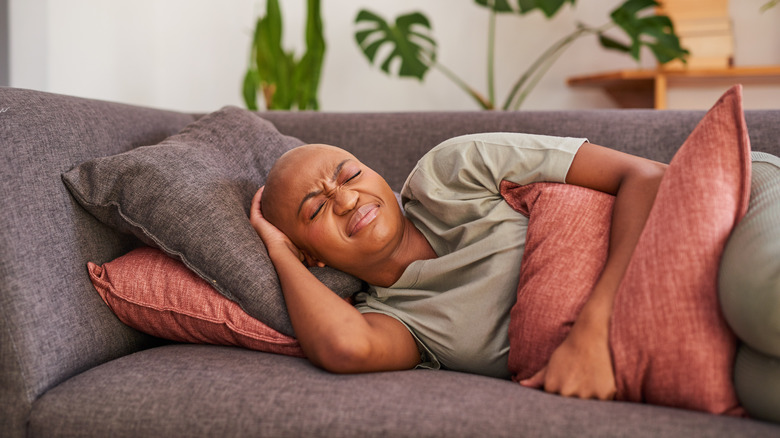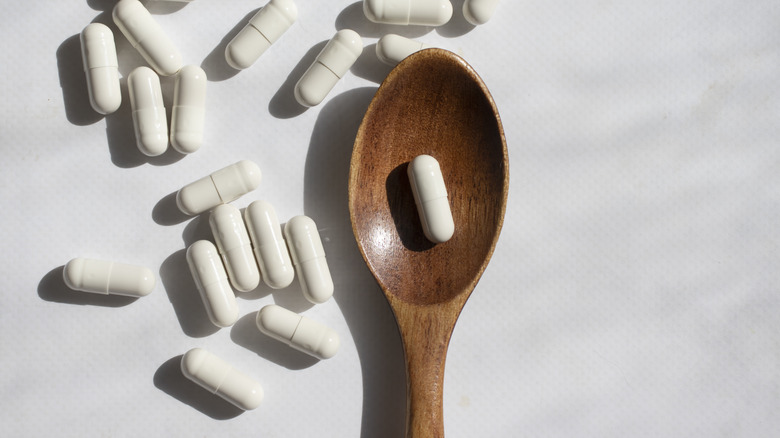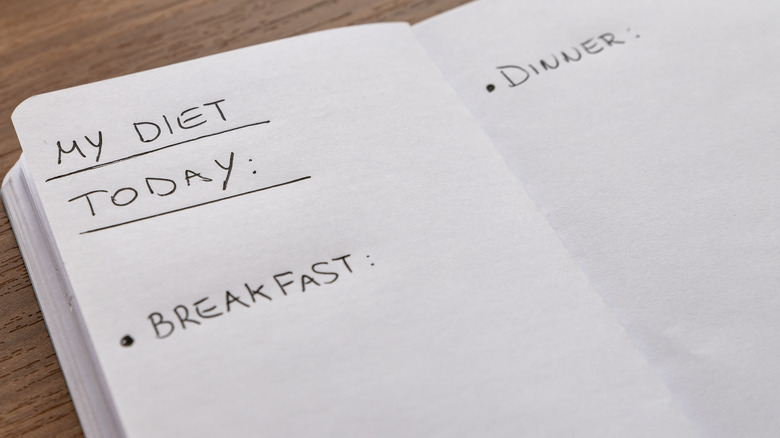How To Prevent Your IBS Symptoms From Worsening, According To An Expert
If you have irritable bowel syndrome (IBS), you're probably no stranger to the cramping, bloating, diarrhea, and constipation that can come with it. But there could be ways to keep your symptoms from getting worse, according to Dr. Amy Lee, Head of Nutrition for Nucific, a company that creates formulas made from natural digestive enhancers and enzyme supporters to improve digestion.
"Irritable bowel syndrome is a condition that involves a number of symptoms relating to the gastrointestinal tract, consisting of different variations of abdominal cramping, bloating, diarrhea and/or constipation (or both)," Dr. Lee shared with Health Digest. What can be troublesome for those with IBS is understanding why they're having these symptoms or how they got the condition. But the science isn't that clear. "The cause is still unknown, as research hasn't shown any inherited or familiar origin," said Dr. Lee. Symptoms can appear at any age. But there's some good news: "We do know that this condition does not show any tissue pathology or long-term complications," according to Dr. Lee.
Treat your IBS with diet changes and supplements
Treatment for IBS can include dietary changes, getting regular exercise, drinking plenty of water, taking fiber supplements, taking over-the-counter medications like laxatives, and medications prescribed specifically for IBS, such as alosetron and eluxadoline (via the Mayo Clinic). Dr. Lee focuses on "a revision of one's diet." She says, "Your physician may recommend a higher-fiber diet, cutting out potentially inflammatory foods with gluten, and following something called a low-FODMAP diet."
FODMAP is an acronym for many different carbohydrates: Fermentable Oligosaccharides (fructans and galactans), Disaccharides (lactose), Monosaccharides (fructose), and Polyols (sugar alcohols). "These are typically additives in processed foods that can cause bloating and gas once it passes through the digestive tract, which interacts with the body's natural probiotics," says Dr. Lee. All the bacteria in our body, whether good or bad, can get disrupted by these foods.
Dr. Lee suggests taking high-quality supplements to re-align your body's probiotics. She also recommends getting enough fiber. "What you do want to focus on is fiber from natural products and foods," she explains. "Fiber also comes in various forms, soluble and insoluble, which should be eaten in good proportions." According to Dr. Lee, you should add fiber little by little so as to not overwhelm your gut and cause even more gas and discomfort. "Some say to focus on ultimately eating more than 40 grams daily, but you have to be careful with titrating up. Start slow and go up 5-10 grams of fiber weekly to reach your goals."
Keep track of what you eat to understand your triggers
If you have IBS, it will be important to know what your symptoms are as well as what might be causing them. Dr. Lee suggests keeping track of your diet and symptoms. "One way to figure out if you have food triggers is by journaling your symptoms and your foods that you have eaten at least 24 hours prior," she shares. "Normal gastrointestinal tracts take up to 24 hours to empty. This way, you could understand which groups of foods cause your specific symptoms." Once you know which foods are likely impacting you, you can try avoiding them so as to minimize flare-ups. She also recommends writing down every symptom you have, to better understand which type of IBS you have.
While tracking diet can be helpful, taking medications can also be important for managing symptoms. But some may need more support beyond that. "There are medications used to treat IBS as well, but you need to make sure you seek help if the symptoms become disruptive to your life," says Dr. Lee.



